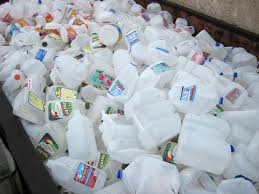Although it may not be a hot enough story to make the nightly news, the polypropylene (PP) recycling process is evolving. That’s exciting, because any advances that allow us to improve the way we recycle this highly-prized resin are welcome.
As environmentally conscious consumers ask companies to use more sustainable production methods, some of the world’s biggest brands have turned to polypropylene. Take Starbucks, which switched its plastic cups from polyethylene (PE) to polypropylene in 2008, largely because producing polypropylene generates less greenhouse gases than producing polyethylene does. The coffee chain also makes its reusable cups from polypropylene, and in 2016 began making its lids out of the material so they could be more readily recycled.
Demand for polypropylene is on the rise in many industries, according to the Association of Plastic Recyclers. The ACR surveyed 21 major consumer brand companies and found that their demand for polypropylene was more than 280 million pounds annually for non-food contact uses.
With so much demand for this versatile product, we’re constantly looking for ways to recycle polypropylene as efficiently and affordably as we can. That’s why we’re interested in what Procter & Gamble is doing in Ohio, together with a startup called PureCycle Technologies.

It all started with a P&G polymer scientist, who developed a new kind of purification process that promises to return used PP to a like-new state. The technology P&G developed has some exciting and potentially very profitable implications for our industry because it would allow for even contaminated and dark-hued polypropylene, which are currently difficult to recycle efficiently, to be returned to a like-new state — and that means they’ll be more valuable than they currently are.
P&G licensed its technology to PureCycle, so the latter will be the first to test out this new process. P&G is keeping the exact process under wraps for now, but we do know that it works by stripping out inks and additives in several steps.
But it will be a few years before we see if the purification process works as well as P&G claims. PureCycle broke ground on its first testing facility in July and plans to open a facility to recycle polypropylene on a commercial scale by 2020. The implications are exciting, though, so we’ll be watching closely to see how this potentially game-changing technology evolves.

